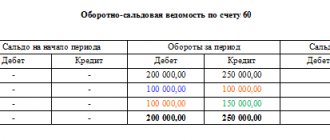Fiscal document - what is it?
Fiscal documents are documents that are generated by a cash register. In accordance with Law 54-FZ, which regulates the use of cash register equipment, all fiscal documents are now transferred to the Tax Service . The scheme is as follows: the document is sent by the online cash register to the fiscal data operator - in response, confirmation of its successful transmission is received - the OFD sends the document to the Federal Tax Service. The exchange of fiscal documents takes just a few minutes and occurs automatically.
Next, let's look at what fiscal documents exist.
Fiscal check: what is it?
The concept of “fiscal check” has not yet been enshrined in federal legislation and is not used there. It is noteworthy that not so long ago it could have appeared there: in one of the first editions, bill No. 551847-7 (introducing a number of changes to the Tax Code of the Russian Federation and other federal laws) contained language that determined sanctions for failure to provide a fiscal receipt to the Federal Tax Service by individuals with professional income tax payer status. The bill was adopted in November 2021, but in the final version the wording containing the term “fiscal check” was replaced by those containing the concept of “information on settlements made.”
Thus, the term in question can be interpreted freely, but taking into account the established practice of its use. Of course, including taking into account the fact that it was replaced in the said bill with the term noted above. Moreover, we have the right to define a fiscal check based on the meaning of the final wording of the relevant bill.
That is, a fiscal check is, first of all, a document that reflects “information about the calculations made.” In the case of the subject of regulation of the law that was adopted following the consideration of the bill (we are talking about the Law of November 27, 2018 No. 425-FZ - LINK), this is information about the calculations of an individual who pays (as part of a well-known experiment) tax on professional income, with customers (clients). In a broader sense, a fiscal receipt may thus contain information about any settlements of a particular entity with other participants in economic relations.
[adsp-pro-1]
It is right to wonder why the legislator decided to abandon the use of the term “fiscal check”. It is likely that this is due to the fact that “information about the calculations made” does not necessarily have to be presented in the form of a document corresponding to the characteristics of a “check”. That is, a certain form on which the calculated data is recorded. Logically, this information does not necessarily have to be “fiscal” - that is, related to the performance by an authorized government body (in this case, the Federal Tax Service) of functions related to ensuring the representation of the interests of the treasury.
To understand the validity of our assumptions, let’s turn to the sources of law that regulate (in accordance with Law No. 425-FZ) the exchange of “information on settlements made.” We will talk, first of all, about Article 14 of the Law of November 27, 2018 No. 422-FZ (LINK), which states that:
- An individual paying tax on professional income, when receiving payment for goods or services, undertakes - using the “My Tax” mobile application (or acting through an authorized operator of an electronic platform or a bank):
- transfer information about settlements to the Federal Tax Service;
- generate a check and give it to the buyer (unless otherwise provided by law).
- The composition of information about calculations is determined by the procedure for using the “My Tax” application.
Thus, we immediately note that the legislator shares:
- information - subject to transfer to the Federal Tax Service;
- check - subject to transfer to the buyer (client).
It turns out that changing the content of the law in different readings is quite justified: the check is created, indeed, for non-fiscal purposes (since its recipient obviously does not perform fiscal functions), and the “information” is transferred to the Federal Tax Service (the entity, in turn, performing fiscal functions ) in the prescribed format, regardless of the receipt. And there is really no need to summarize them into some kind of “fiscal check”. Two different procedures are formed - “fiscalization” (outside the procedure for working with a check) and transferring the check to the buyer (outside the fiscalization mechanism).
At the same time, there is still a lot in common between the “information” and the check: in accordance with the rules for using the “My Tax” application (LINK), the composition of the “information” must be identical to the list of details of a cash receipt in accordance with paragraph 6 of Article 14 of Law No. 422-FZ. So, in a sense, “fiscal” information is still a kind of “check” (since in the case under consideration it repeats its details).
In turn, attention is also drawn to the fact that the mandatory details of the check include an identification number assigned by the Federal Tax Service (subclause 12 of clause 6 of Article 14 of Law No. 422-FZ). Therefore, it would not be entirely correct to talk about the complete “non-fiscal” nature of the check. Yes, it can only be transferred to the buyer - but the Federal Tax Service is “aware” of its existence (since it issues an identifier).
[adsp-pro-4]
Thus, at the level of federal legislation, the concept of “fiscal check” has not yet been enshrined, but the basic principles of its application can be identified. This, one way or another, will be a document that:
- Contains information about settlements (between the supplier of goods and services and their buyer).
- Contains information that is subject to transfer to the Federal Tax Service in accordance with the established procedure.
- Represented by a document that may include details similar to those typical for a check.
At the same time, the document acquires the “fiscal” property precisely for the reason that it is subject to transfer to the regulatory authority. If such a transfer does not occur, then the check can be legitimately considered as “non-fiscal” - even if it meets the other two criteria.
The most common “fiscal” check is a cash receipt. But it is not the only one that can be classified in this category of documents. Let us consider which documents, in principle, based on the above definition, can be legally classified as “fiscal” and “non-fiscal” checks, in more detail.
CCP registration report
The very first fiscal document that will need to be generated is a cash register registration report. It is compiled once during the initial registration of the cash register with the Federal Tax Service .
The registration report reflects information about the taxpayer, the selected cash register model, the location of its installation, operating mode and fiscal data operator. In addition, the report contains the information necessary to indicate in your personal account on the Federal Tax Service website:
- fiscal sign of the document;
- Document Number;
- date and time of receipt of the fiscal sign.
Important! You can use the cash register only after the Federal Tax Service has generated a cash register card. This information is available in your personal account on the website www.nalog.ru.
How to withdraw a fiscal report
Advice from an Expert - Financial Consultant
Photo on the topic A fiscal report is a document taken from the fiscal memory of cash register equipment that stores all sales results. Access to it is protected by a password, which is entered by the tax inspector when registering the cash register with the tax authority. In this regard, it is possible to withdraw a fiscal report only in certain situations and in accordance with the established procedure. Just follow these simple step-by-step tips and you will be on the right track when solving your financial issues.
How to remove an X-report - X-report, the process of removing an X-report, how to remove an X-report from “... 01/03/2012
Shift opening report
So, the cash register is registered - you can start working. First of all, you need to open a shift . This is a daily operation, and it is accompanied by the generation of a report on the opening of the shift. Only after this will it be possible to accept payment at the checkout. The report reflects:
- shift number;
- Full name of the cashier who opened it;
- opening date and time.
Example of a shift opening report
In addition to the report, information about the start of the shift is reflected in the user’s personal section on the website of his OFD . There you can also find a lot of other information - the amounts received from customers and returned to them, the size of the average check, and more. This information will allow you to more effectively monitor the store and generate various reports.
Cash receipt and its analogue - BSO
A cash receipt is a well-known fiscal document, the creation of which accompanies every cash and bank card payment in a store. Receipts are generated not only when goods are sold, but also when they are returned, and in some other cases.
In accordance with the current version of Law 54-FZ, a cash receipt must have many different details, which are listed in paragraph 1 of Article 4.7 of this law.
, a strict reporting form (SSR) can replace a cash receipt . The form must contain the same mandatory details as a cash receipt. Organizations and entrepreneurs that provide services to the public are allowed to use BSO instead of a cash register check.
It is impossible to create BSO on a computer - they are created using special automated systems . You can purchase them at printing houses or create them online for a small fee, and then print them on a regular printer.
From July 1, 2021, it will be possible to form a BSO exclusively using special systems - BSO-KKT .
Examples of “fiscal” and “non-fiscal” documents
Typical fiscal documents include:
- Cash receipts noted above.
They are formed in accordance with Law No. 54-FZ and can be presented in paper and electronic versions. At the same time, it is the electronic check or the check “file” stored in the fiscal drive that is subject to transfer to the Federal Tax Service.
The first option, when an electronic check is sent to the tax authorities, can be considered the main one. He assumes that the electronic check will be transmitted to the Federal Tax Service via the Internet through the mediation of the Fiscal Data Operator: this is the “fiscalization” mechanism. By default, all users of online cash registers must have an agreement with the OFD.
The second option - providing access to the receipt file in the drive, can be considered an alternative. He assumes that the Federal Tax Service itself calculates data from the fiscal drive, which the business entity brings to the department (letter of the Federal Tax Service of Russia dated February 16, 2018 No. AS-4-20 / [email protected] - LINK). This option is implemented if the cash register is used in a mode without data transmission: in the most general case, this mode is activated when a business entity is located on the territory of a populated area in an area remote from communication networks (clause 7 of Article 2 of Law No. 54-FZ - LINK).
- Strict reporting forms.
In its modern form, the use of BSO is also regulated by the provisions of Law No. 54-FZ. According to the main features, the BSO is equivalent to a cash receipt: the mechanisms for its “fiscalization” (transfer to the Federal Tax Service) are similar.
There is one difference: a cash receipt can be issued both for the sale of goods and for the provision of services. BSO - only when providing services. The use of a strict reporting form is advisable in cases where a business entity has a risk that its economic activity will be erroneously classified as sales during a tax audit - when services are actually provided (and, as a result, there is a possibility of undesirable reclassification of the current taxation system to another).
[adsp-pro-9]
Previously, the use of BSO was regulated by Decree of the Government of Russia dated May 6, 2008 No. 359. The forms were printed on printing forms in two copies - and one of them, if necessary, could be requested by the Federal Tax Service from the business entity during the inspection. This was the mechanism of “fiscalization”.
Now Resolution No. 359 is formally in force, but is not applied in practice. But it is possible that the legislator will adopt norms according to which the effect of this act will be extended to certain fiscalization mechanisms.
- A sales receipt drawn up in accordance with the recommendations of the Ministry of Finance (letters dated 08/16/2017 No. 03-01-15/52653 - LINK , dated 05/06/2015 No. 03-11-06/2/26028 - LINK).
This type of receipt is used less and less often, but was previously common and used regularly to confirm a person’s purchase in a store. Such confirmation could be useful to him if, for example, he was on a business trip and had to document expenses made in another city. Currently, proof of expenses can be made using a cash receipt. But in a situation where it cannot be issued, a sales receipt will come to the rescue.
Thus, during the well-known mass failure of online cash registers in December 2017, when the largest supermarkets and many other retailers could not print cash register receipts, it was recommended to use commodity receipts instead. In the corresponding regime, sales receipts, by the way, played the role of fiscal documents: as part of subsequent tax audits, the Federal Tax Service was authorized to request copies of these documents from business entities.
But even in the context of scenarios that are not related to those that may be typical for failures in the operation of cash registers, the sales receipt, one way or another, remains fiscal - since it is issued in two copies, and one of them is stored in the accounting department of the trading enterprise. In accordance with the established procedure, it can be “fiscalized” - that is, requested by the Federal Tax Service during an inspection.
In turn, typical non-fiscal checks include:
- Sales receipt - an alternative to a cash receipt and drawn up in accordance with Law No. 54-FZ.
Some business entities, in accordance with Law No. 54-FZ, have the right not to use online cash registers - but only if they issue customers (clients) with a document alternative to a cash register receipt - confirming payment. It must contain details that generally correspond to those present on the cash receipt, or more precisely, those reflected in paragraphs 4-12 of paragraph 1 of Article 4.7 of Law No. 54-FZ (LINK). At the same time, it is possible not just to issue, but to “send” a check - that is, theoretically, the document can be transferred to the buyer in electronic form.
Such documents are required to be issued, in particular:
- individual entrepreneurs exempted in accordance with paragraph 2.1 of Article 2 of Law No. 54-FZ from the use of online cash registers;
- business entities located in hard-to-reach places - and also have the right not to use online cash registers in accordance with paragraph 3 of Article 2 of Law No. 54-FZ.
In the case under consideration, the sales receipt can be issued in a single copy: the business entity does not have to keep a copy of it. Therefore, the document can rightfully be considered non-fiscal - the Federal Tax Service will not demand such checks during an audit. Although it may impose sanctions on the store if it does not issue a receipt to the buyer - if it finds out about this (but this is not tax control).
- A document independently developed by a business entity confirming the fact of payment for goods or services.
In turn, some business entities - in particular, those named in paragraph 2 of Article 2 of Law No. 54-FZ - have the right not to use online cash registers in principle, and not to issue buyers (clients) with any documents to confirm the purchase.
In practice, not all sellers enjoy this right: the client will be surprised by the absence of a check issued, and even if the seller refers to Law No. 54, the person will not understand it. The purchase is completed - they must issue a receipt, he will be sure. And if he doesn’t receive it, he will henceforth treat the store with distrust. Otherwise, he will go to complain to the authorities - which in any case are not very pleasant to deal with.
[adsp-pro-6]
Therefore, in practice, individual entrepreneurs and legal entities who can do without a cash register and without checks still give customers a document as confirmation, often very similar to a check (as an option, printed on a receipt printer, which, in turn, is similar to the online checkout). The seller determines the composition of its details independently, but can be guided by:
- on the details of the sales receipt, which are recommended by the Ministry of Finance;
- to the details of a sales receipt, which is used as an alternative to a cash receipt under Law No. 54-FZ;
- to the details of the cash receipt according to Law No. 54-FZ;
- to the details of the BSO according to resolution No. 359.
Any document will be legal. If it really looks like a check, the buyer will not have any unnecessary questions.
It is clear that the corresponding essentially unofficial document also applies to non-fiscal ones. The Federal Tax Service will not even begin to find out whether the seller issued such checks or not - unless, of course, it considers it doubtful whether he has the right to refuse to use cash registers. But this is a completely different reason for communication between the store and regulatory authorities.
- Acquiring check - used for card payments.
Most modern stores (at least almost all chain stores and relatively large retail outlets) accept card payments. To do this, an acquiring terminal is used - which reads the card, contacts the bank via the Internet and, if the bank has approved the payment, prints a receipt confirming payment by card.
It is important to know that this check is neither technologically nor legally related to the cash receipt that is printed at the online cash register (like any other fiscal document). The use of online cash registers is regulated by some regulations, and acquiring by others. And this despite the fact that in the cash receipt (when paying by card):
- the amount that was posted using the acquiring check is duplicated;
- it is indicated that the payment was made electronically - by non-cash payment.
Moreover, an online cash register and an acquiring terminal are sometimes one device - thus consisting of two modules for different purposes, housed in one housing. But that doesn't matter. An acquiring receipt is a document for the buyer. The Federal Tax Service cannot request it, and therefore this document should be considered non-fiscal.
At the same time, you need to keep in mind that quite a “fiscal” procedure would be for the Federal Tax Service to contact the current account - to which the acquiring terminal is linked. But there the tax authorities will only be interested in the revenue (or expenses) of the business entity. Possibly - amounts for individual checks. But the tax authorities do not need to maintain the acquiring checks themselves.
So, we have defined what a “fiscal check” means and examined its main varieties. We have determined that the main type of fiscal check is a cash receipt (and BSO), issued in accordance with Law No. 54-FZ.
At the same time, the concept of a cash receipt, as enshrined in Law No. 54-FZ, should be distinguished from various expanded interpretations and unofficial uses of the term “cash receipt” (including taking into account the need to separate it from the concept of “fiscal receipt”).
Shift closing report
A cash register shift cannot last more than 24 hours . At the very end, it is necessary to generate a report on the closure of the shift. It contains information about the shift number, the date and time it was closed, as well as how many checks were issued.
If for some reason during the shift not all fiscal documents were transferred to the OFD , the closing report contains their number, as well as the date and time of generation of the first of them. If the cash register stops transferring receipts to the OFD, it means something went wrong - the Internet was lost, some problems occurred in the machine itself, and so on. From the moment the fact of non-transfer of the first fiscal document is recorded, the 30-day reporting period . During this time, “stuck” documents must be sent to the Federal Tax Service. If this does not happen, the fiscal drive (memory module of the online cash register) will be blocked and will not be able to conduct sales.
When it’s time to replace the fiscal drive, the cash register will notify you about it. This information is also reflected in the shift closing report. Such messages will begin to appear when there are 30 days left until the expiration date of the fiscal storage device or if the cash register memory is filled to 99%.
In addition, the shift close report may contain some sales data , such as total revenue, including cash and electronic funds. This information is not a required part of the report, so it may not appear. If necessary, they can be obtained from your personal account on the OFD website.
How to correctly formulate fiscal documents
Fiscal document
Fiscal data is information about settlements generated by a cash register or operator. Fiscal data presented in established formats constitute a fiscal document (Article 1.1 of Federal Law No. 54-FZ of May 22, 2003, hereinafter referred to as Law No. 54-FZ).
Fiscal documents, data on which are stored in the fiscal storage device, include (clause 4 of article 4.1 of Law No. 54-FZ):
- registration report;
- report on changes in registration parameters;
- shift opening report;
- cash receipt (CSR);
- correction cash receipt (CSR correction);
- shift closing report;
- report on closing the fiscal drive;
- report on the current status of settlements;
- operator confirmation.
The formats of fiscal documents were approved by Order of the Federal Tax Service dated March 21, 2017 No. ММВ-7-20/ [email protected] (hereinafter referred to as the Order). They are needed so that the seller, buyer, fiscal data operator (FDO) and tax office can receive information about trading operations using unified templates. This is a method, an algorithm for generating a cash receipt, BSO or other fiscal document.
Thus, the format of fiscal documents (FFD) determines the composition, format and mandatory indication of details in fiscal documents.
Fiscal document formats
The order approved two formats of fiscal documents - 1.05 and 1.1 (format 1.0 was abolished as of 01/01/2019). They differ in the list of details they must contain and the order in which they are reflected. The older the FDF version, the more features it supports.
Thus, FFD 1.05 provides two new parameters required from 2019:
- the attribute of the subject of payment is the category of goods and services;
- The payment method attribute is the category of the method in which payment is accepted (for example, payment on credit, prepayment or full payment).
Format 1.1 supports the widest range of financial transactions and is able to tell almost everything about the transaction. In receipts according to FFD 1.1, for example, payment methods are indicated (if it is not just cash or electronic payments), characteristics of the goods sold or services provided, place of payment, and much more.
Which technique to choose
The compatibility of a specific cash register model with the FFD format can be checked on the Federal Tax Service website in the cash register register.
The default FFD type is embedded in the software algorithms of the key technological component of the online cash register - the fiscal drive (FN).
Thus, FN 1.0 can operate both in FFD 1.0 mode and in FFD 1.05 mode. And FN 1.1 – with all versions of FFD. The FFD type should be selected at the stage of registration (re-registration) of the cash register.
When switching from one version of the FDD to another, as a rule, the online cash register software is “reflashed” in the manner specified by the manufacturer. The FN may also need to be replaced.
Practical situations on the site
Please note that the general list of details of a cash receipt or BSO is defined in the provisions of Article 4.7 of Law No. 54-FZ. In the Order they are duplicated and supplemented by others, in relation not only to a cash receipt or BSO, but also to other fiscal documents.
On the website of the Federal Tax Service of Russia https://kkt-online.nalog.ru in the section “Methodological instructions”, in addition to the sale by the commission agent of his own and commission goods, contains instructions for the formation of fiscal documents in the following situations:
- sale of goods (letter of the Federal Tax Service of Russia dated July 3, 2018 No. ED-4-20/ [email protected] );
- sale of goods using a gift card (letter of the Federal Tax Service of Russia dated July 3, 2018 No. ED-4-20/ [email protected] );
- about the peculiarities of generating a cash correction receipt (letter of the Federal Tax Service of Russia dated 08/06/2018 No. ED-4-20/ [email protected] );
- correction of errors (violations) when making calculations (attachment to the letter of the Federal Tax Service of Russia dated August 6, 2018 No. ED-4-20/ [email protected] );
- issuance of funds by a bank payment agent (letter of the Federal Tax Service of Russia dated November 13, 2018 No. ED-4-20/ [email protected] );
- provision and repayment of a loan to pay for goods (providing installment plans for payment for goods) (letter of the Federal Tax Service of Russia dated 02/04/2019 No. ED-4-20/ [email protected] ;
- receipt of advance payment for your own goods, subsequent offset of the advance payment for the goods and provision of a loan to pay for the goods, as well as repayment of the loan to pay for the goods (letter of the Federal Tax Service of Russia dated February 20, 2019 No. ED-4-20 / [email protected] ).
Tax expert B.L.Svain
PRACTICAL ENCYCLOPEDIA OF AN ACCOUNTANT
Complete information about accounting rules and taxes for an accountant. Only a specific algorithm of actions, practical examples and expert advice. Nothing extra. Always up-to-date information.
Connect berator
Correction check
A variation of a cash receipt is a correction check. It breaks through when the CCT was not applied in a timely manner . For example, during the payment process the cash register broke down or the electricity went out. Another example: the cashier made a payment at the acquiring terminal, but did not issue a receipt.
A correction check allows you to avoid liability under Article 14.5 of the Code of Administrative Offenses of the Russian Federation for failure to use cash register equipment, therefore the tax authorities pay special attention to this fiscal document. You should also be prepared for the fact that inspectors may ask for clarification regarding the generation of such a check.
The adjustment procedure is as follows:
- Drawing up a foundation document - an act or memo. It should indicate the number and date of compilation, note the time at which the cash register was not applied, and state the reason for this.
- Formation of a correction check . It records the amount that was not punched out at the cash register in a timely manner, and indicates the date, number and name of the document from paragraph 1.
- Tax notice. A free-form application is drawn up in which the taxpayer reports the fact that the cash register has not been used and that it has been corrected using a correction check.
We recommend reading detailed material on adjusting revenue unaccounted for on cash registers with examples and sample documents.
Note! If the wrong amount , then there is no need to draw up a correction check. In this case, it is enough to carry out the reverse operation and then punch the correct check. For example, if the cashier incorrectly indicated the purchase amount on the sales receipt, he should generate a check with the attribute “return of receipt” for the incorrect amount, and then issue a receipt “receipt”, in which he should indicate the correct cost of the purchase.
Example of a correction check
Registration settings change report
When registering a cash register with the Federal Tax Service, the owner provides various information about himself, the cash register, and the fiscal drive. Sometimes there is a change in this data. For example, the cash register was moved from one office to another, it was time to replace the fiscal drive, or the store began to sell cigarettes, alcohol or other excisable goods.
In all these and many other cases, it is necessary to change the settings on the cash register itself and re-register it . During this process, you will need to generate a report on changes in the CCP registration parameters. It indicates the reason for re-registration of the cash register and all registration parameters. Data that is subject to change is indicated in an updated form.
Note! Re-registration of the cash register will be completed after the user provides the data from this report in his personal account on the Tax Service website.
Financial Fund closing report
Throughout the article, we repeatedly mentioned the fiscal drive - this is the memory of the online cash register. It encrypts, stores and transmits fiscal documents over the Internet. The FN has a validity period, after which it must be replaced. There are also other reasons for replacing it, for example, the cash register is deregistered or the storage capacity of the drive runs out.
Before generating a report on closing a financial fund, you should make sure that there are no untransferred documents left in it. This information can be obtained from the shift closing report.
If everything is in order, you can generate a report on closing the financial fund. It will contain the parameters necessary to re-register the cash register in connection with replacing the drive or to deregister it. This is a fiscal sign, the date and time of its receipt and the number of the fiscal document. The same information will be reflected in the OFD personal account.
A short video about correction checks:











